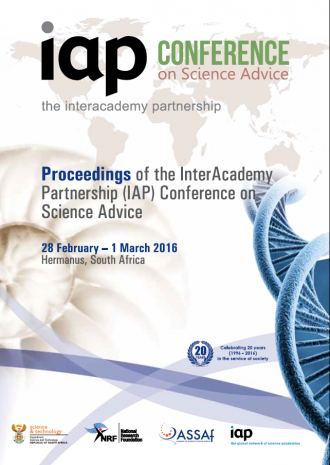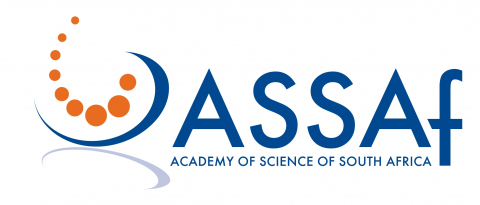The Academy of Science of South Africa (ASSAf) released a report about the proceedings of the InterAcademy Partnership (IAP) Conference on Science Advice held from 28 February – 1 March 2016, Hermanus, South Africa.
Science is at the heart of the United Nations sustainable development goals (SDGs). However, integrating the best science into the plans of government and others working towards the SDGs, remains a challenge.
The three-day conference in Hermanus brought together scholars from South Africa and abroad for discussions on, among others, science advice in times of emergencies or disasters, country readiness for science advice and the interplay between science advice, politics and the media.
Eminent international speakers included Prof Sir Peter Gluckman, Chief Science Advisor to the Prime Minister of New Zealand; Prof Jacqueline McGlade, Chief Science Advisor to the United Nations; Mr David Mair of the European Commission; and the Co-Chairs of the IAP, Prof Volker ter Meulen and Prof Mohamed Hassan.
Deliberating on the various themes and highlighting best practices, it was evident that scientific policymaking is complex, as it is influenced by factors such as pressures from the public, policy analysts, and lobbyists.
The scientific community needs to play a direct role in ensuring that the scientific perspective is present in policymaking across various areas of global importance, such as climate change, urbanisation, disasters, deadly viruses, or emergencies that confront society.
Science does not stand apart from society and scientists have a responsibility to ensure that scientific debates are informed by solid scientific evidence, logical argument, reasoning and sound advice.
The three circles of science, policy and society cannot be separated. With each of these changing rapidly, the interactions between them change as well. Science is being seen as a tool of both national and international development. This is causing many governments to realise that science does have a useful role to play in policymaking.
In the context of government, science has changed from normal issues to post-normal issues with its nature moving from linear and reductionist approaches to accepting complexity, to dealing with systems-based approaches; and from certainty to probabilistic approaches.


